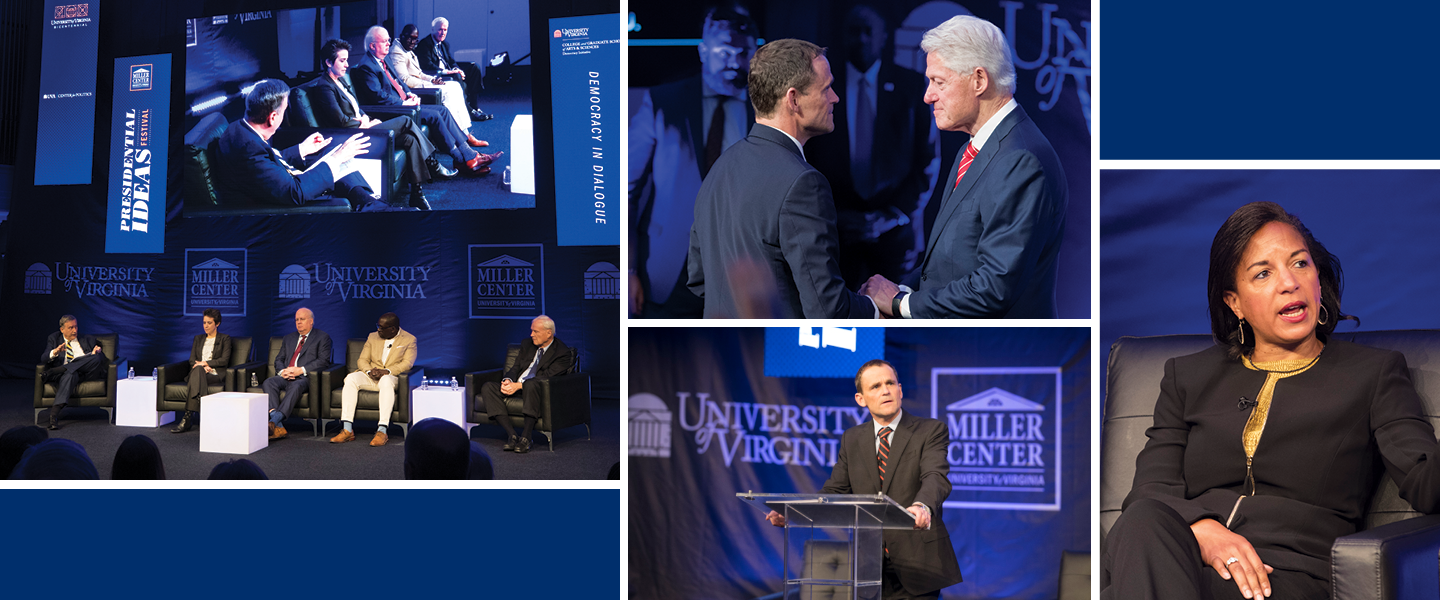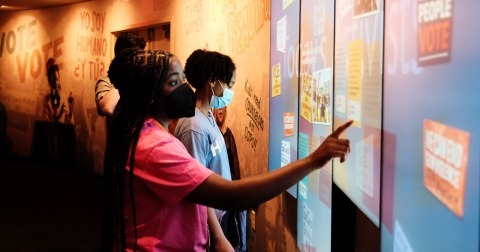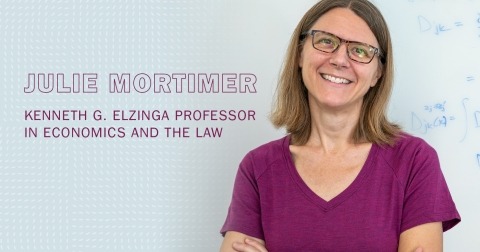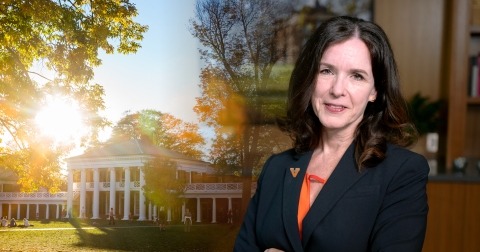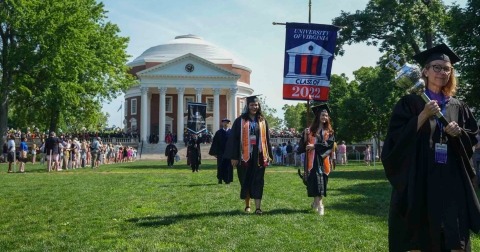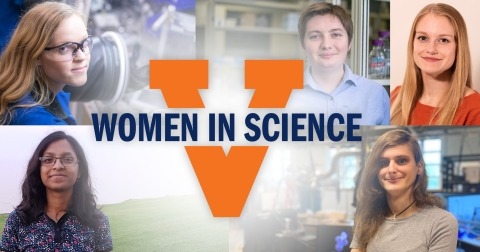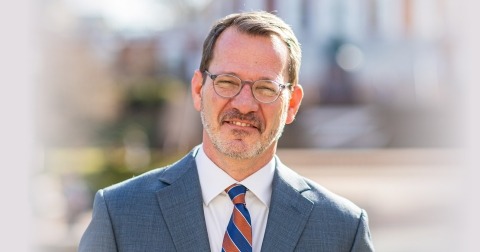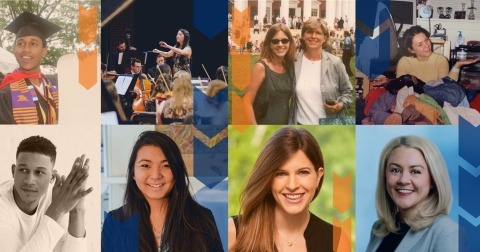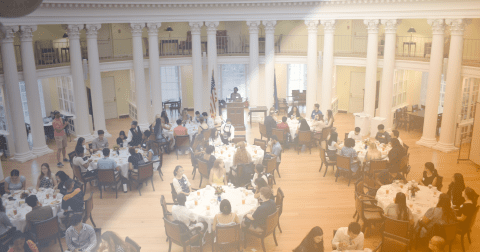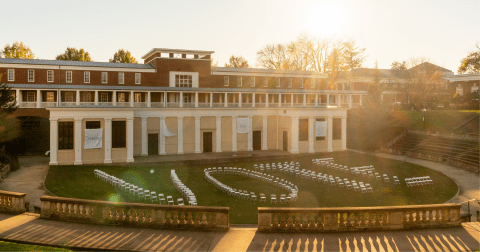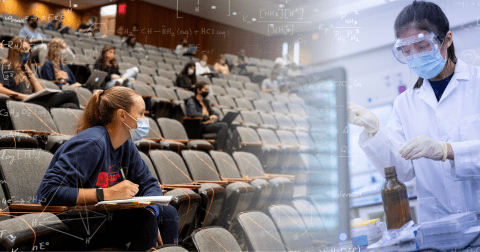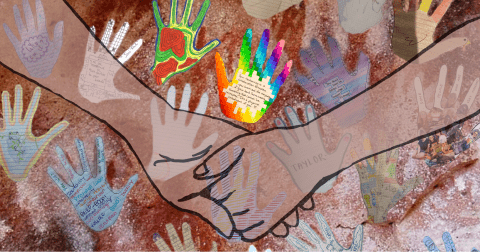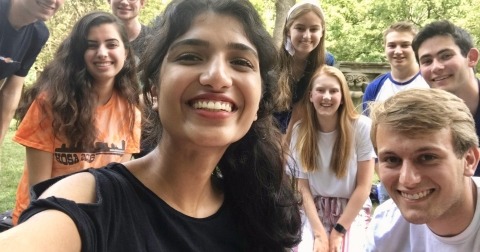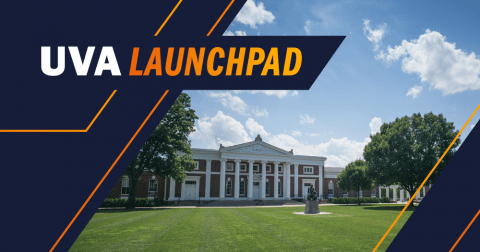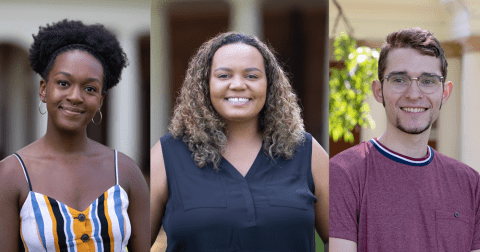UVA’S DEMOCRACY INITIATIVE MAKES SIGNIFICANT STRIDES IN ITS FIRST YEAR
Since last year, the University of Virginia’s Democracy Initiative has launched four research labs led by some of the top Arts & Sciences faculty on Grounds. Private funding in excess of $50 million has been committed to support the Initiative’s aim to bring together a diverse range of scholars, government leaders, and practitioners to study and advance the prospects of democracy around the world.
An ambitious teaching, research, and public engagement effort led by the College and Graduate School of Arts & Sciences with the support of the Miller Center of Public Affairs, the Initiative had its true coming-out party last May. The Presidential Ideas Festival, a three-day event that drew former President Bill Clinton and other White House veterans, political figures, and diplomats from both major political parties to Grounds to discuss the future of the Amer-ican presidency with UVA Center for Politics Director Larry Sabato and other notable scholars and historians.
Addressing the audience in a packed Old Cabell Hall on the first day of the festival, UVA President Jim Ryan said the gathering represented what he called “the original, animating purpose of UVA — to serve, and in particular, to serve democracy.”
“I believe universities have a unique responsibility to do our part to strengthen and sustain democracy, and while this is true for all universities, it is especially true for this university,” he said, adding a nod to UVA founder Thomas Jefferson’s role in articulating Amer-ica’s founding ideals.
“We have been striving to bring us closer to those ideals by pointing out, based on facts, where we are falling short, and by preparing a new generation of leaders who will bring us closer to realizing those ideals,” Ryan said.
AN EARLY COMMITMENT PROPELS PLANS
Under the leadership of Melody Barnes, the Initiative’s co-director for policy and public affairs, a selection committee approved the creation of the new “democ-racy labs” this past year, part of a rotating series of labs supported by philanthropy and the Mellon grant.
“The Mellon Foundation’s early com-mitment to the Democracy Initiative came at a critical juncture,” said Barnes, former director of President Barack Obama’s Do-mestic Policy Council. “At a time when the challenging issues before us often inspire more heat than light, the Foundation’s sup-port does two important things. It ensures our work is grounded in a robust under-standing of the philosophy and history that shape today’s debate, and it bolsters our efforts to illuminate a way forward.
“The grant is continued validation — by one of the country’s premier philanthropic institutions — of the importance of the work underway at the University of Virginia.”
The Religion, Race & Democracy Lab (RRD) and the Corruption Laboratory on Ethics, Accountability and the Rule of Law (CLEAR) were the first two labs approved by the Democracy Initiative. Under the leadership of Associate Professor Martien H. Halvorson-Taylor (Religious Studies) and religious studies chair Kurtis Schaeffer, the RRD Lab is developing undergraduate, graduate, and faculty research and hosting a number of public engagement efforts, including Sacred & Profane, a non-fiction campaign financing, electoral coercion, the historical political economy of demo-cratic institutions, and corruption’s role in the distortion of markets.
"The lab brings together scholars from across the University to develop effective responses to global threats to democracy."
Last spring the Initiative approved two more labs for interdisciplinary research led by Todd Sechser, the Pamela Feinour Edmonds and Franklin S. Edmonds Jr. Discovery Professor of Politics, and Siva Vaidhyanathan, the Robertson Professor of Modern Media Studies and director of the Center for Media and Citizenship.
Sechser’s Democratic Statecraft lab en-lists nine faculty members from the depart-ments of history, politics, and psychology, as well as the Batten School and the School of Law. The Miller Center and the Brook-ings Institution also will serve as institu-tional partners to the lab, which plans to organize a pair of future symposiums, one geared toward academic scholarship and another geared toward public policy strat-egies inspired by the scholarship produced by the lab’s contributors.
“The lab brings together scholars from across the University to develop effective responses to global threats to democracy,” Sechser said. “We are building partner-ships outside the University with those in the policy community who are working on these problems. Confronting authoritarianism is the defining challenge of American foreign policy in the 21st century, and we need to prepare now to face that challenge.”
Vaidhyanathan said his Deliberative Media Initiative lab aims to address one of the central problems facing democracy in the 21st century, as factionalism, amplified by social media, has made democratic governance difficult and has undermined democratic norms and trust in institutions.
“While our current media ecosystem helps motivate like-minded people to find each other and act, it undermines the ability of diverse groups of people to deliberate informatively and dispassion-ately about issues using a shared body of accepted facts,” Vaidhyanathan said. “The lab would address the problem by assessing and analyzing the current state of media and prescribing technologies, practices and ethics that might foster and promote deliberation.”
The lab’s roster of contributors includes Arts & Sciences faculty members from the departments of media studies, politics, psychology, and German studies, as well as faculty from the Latin American studies and American studies programs, the Batten School of Leadership and Public Policy, the School of Engineering and Applied Science, and UVA’s Data Science Institute.
Over the next five years, the Initiative plans to hire seven new tenure-track faculty. The Initiative’s scholarly and literary output will be disseminated in multiple forms — books and articles, but also digital media, podcasts, and videos — and will aim to shape the public conversation on democracy.
“I truly believe that this Initiative, and the collaborations that it will inspire between social scientists, public policy analysts, and some of the most talented historians, classicists and other humanists in the academy, will define the University of Virginia this century,” Arts & Sciences Dean Ian Baucom said.

